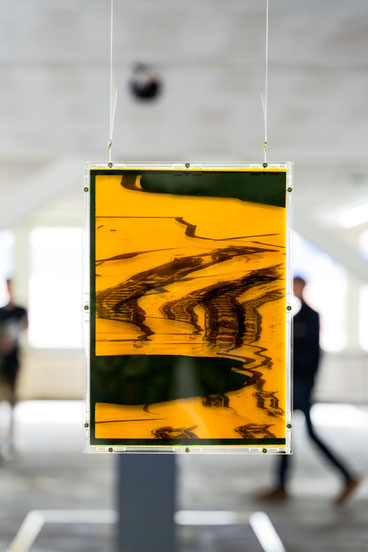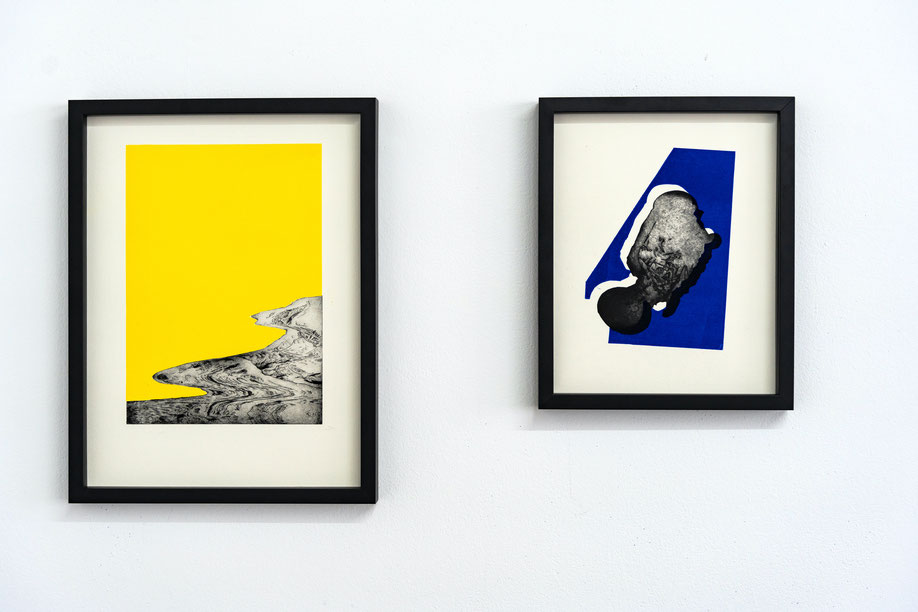Dysutopia



dysutopia • Hoto - home for artists • 2022 • Photo: Elias Laufer


My solo exhibition 'dysutopia' focuses on the interference of dystopian and utopian narratives. Which futuristic-looking worlds fascinate us so much that we want to live in them? At the same time, why do we like to look at violent apocalypses and negative distorted images of future humanity to escape from our everyday lives? Are there certain aesthetics and perspectives that reflect both topias? In order to approach these questions, fragments from pop culture and literature are used as the basis for my works. For example, recurring bodies, gestures, colours and objects are examined and artistically translated into a dichotomous-looking visual language. The individual elements are taken out of their narrative context by painting and drawing them. In addition, alienation processes are used to reproduce the observed aesthetics. The printing process is elementary in this context, as it allows me to break up individual image fragments and experiment with different arrangements and superimpositions. The resulting works, however, are not simple reproductions. The printing plates are continually deconstructed and reconstructed. I combine analogue and digital printing processes by overprinting inkjet prints over intaglio etchings (or vice versa). This is to perceive and practice the process of repetitive narratives and the constant change of mediated dystopian and utopian ideas on a technical level. The combination of pictorial and graphic image components is intended to visualize the interweaving of narratives.
